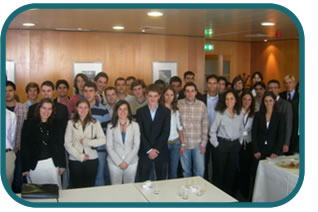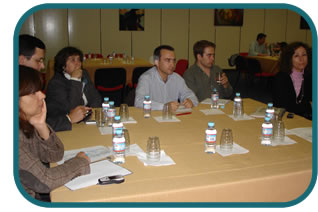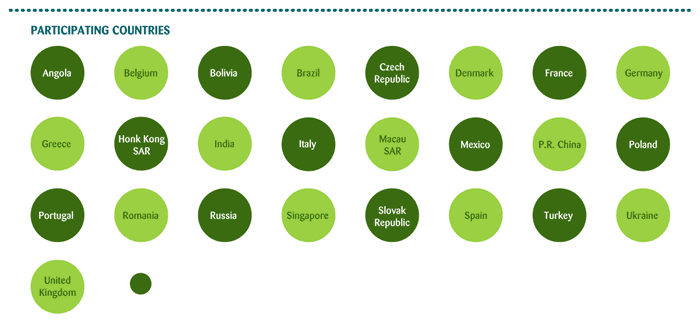
n.03 | March 2007 |
|
The 2006 edition of the Global Management Challenge has now ended for all teams which failed to qualify for the final, but despite this, some of the companies that supported participating teams, have taken the opportunity to bring the participants together for de-briefing sessions. Two such companies were Accenture and Portugal Telecom. They, together with the participants of the teams they supported, analysed the strategies used by the teams during the Challenge, in an attempt to jointly evaluate the positive and negative aspects of their decisions, those which were successful and others with varying degrees of success and failure. Attention was then focused on identifying where they might have improved their analysis of a situation or overall strategy. During the formal session, a brief presentation of the activities of the Accenture organisation was presented. This was aimed to de-mystify the work that a consultant does in the organisation, with an objective to capture the imagination of the many young participants and explain the aims of the Board. This also gave the participants the opportunity to demonstrate the individual and team contributions made and explain how the learning process had strengthened their collective benefit, whilst registering their appreciation of being sponsored to participate in the Challenge. The opportunity was then taken to invite interested participants to apply for work with Accenture knowing that they will continue to receive support in strengthening their management skills. The objectives of the sponsors (supporters) had clearly different goals. For instance, whilst Accenture was predominantly targeting the recruitment of new talents, Portugal Telecom directed its support to developing special board teams. Luis Mora, Human Resource Director, explained “their company objectives were to use the Challenge as an opportunity to develop and extend the skills of their board members in the areas of team management, verify how a company is run and to manage attrition and conflicts.The early arrangements of these post-Challenge meetings are important in providing a ‘follow-up’ of the teams’ participation, in a similar way that, for us, the Global Management Challenge works as a Training Session.” |
|
The Participants views on the Global Challenge In both of the two meetings, the team members exchanged their individual and collective views of the Challenge, generally in terms of strategy and management. There was generally unanimity between the main points made at both of the Accenture and Portugal Telecom sessions. |
|
 |
 |
| Accenture | Portugal Telecom |

Copyright © SDG. All rights reserved. Developed by designSete |